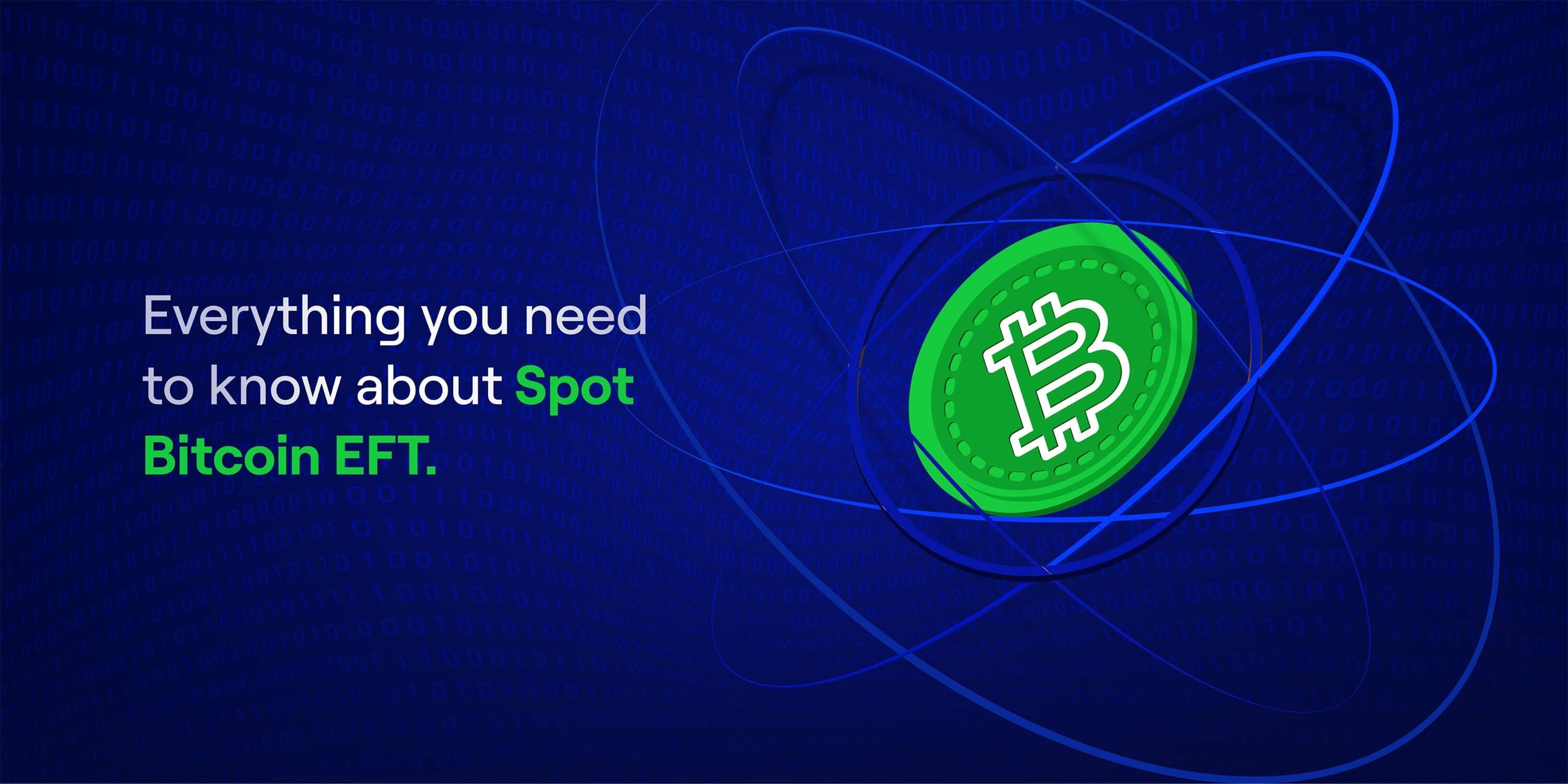
The Approval of Bitcoin ETFs: Here Is What You Need To Know
The recent approval of Bitcoin Exchange Traded Funds (ETFs) by the U.S. Securities and Exchange Commission (SEC) has marked a groundbreaking moment for the cryptocurrency market. In this guide, we'll break down the key aspects of this development and its potential impact on investors.
Understanding Bitcoin ETF Approval
The SEC's approval on January 10, 2024, of the first U.S.-listed ETFs tracking Bitcoin has paved the way for major financial institutions and others to offer these investment products. This move is considered a significant step in institutionalising Bitcoin as an asset class.
Why is this a Game-Changer?
- Investors can gain exposure to Bitcoin without directly holding the cryptocurrency, boosting the legitimacy of the crypto industry after years of scrutiny.
- Analysts estimate potential inflows ranging from $50 billion to $100 billion in the first year alone.
- Bitcoin's market capitalization exceeded $913 billion as of the approval date.
- SEC Chair Gary Gensler, a crypto skeptic, voted alongside commissioners to approve the ETFs. The approval is viewed as a milestone but does not signal a lax approach to crypto regulation.
What is a Spot Bitcoin ETF?
A Spot Bitcoin ETF (Exchange-Traded Fund) is a financial product designed to track the performance of Bitcoin, allowing investors to gain exposure to the cryptocurrency without directly owning it.
A Spot Bitcoin ETF directly holds Bitcoin as the underlying asset, differing from futures ETFs that invest in derivatives rather than the digital asset itself.
The 11 Spot Bitcoin ETFs Approved by the SEC
The SEC has approved the following list of spot Bitcoin securities:
- Grayscale Bitcoin Trust
- Hashdex Bitcoin ETF
- Invesco Galaxy Bitcoin ETF
- ARK 21Shares Bitcoin ETF
- Bitwise Bitcoin ETF
- VanEck Bitcoin Trust
- Valkyrie Bitcoin Fund
- WisdomTree Bitcoin Fund
- Blackrock’s iShares Bitcoin Trust
- Franklin Bitcoin ETF
- Fidelity Wise Origin Bitcoin Trust
Spot Bitcoin ETF vs. Buying Bitcoin
When it comes to investing in Bitcoin, you have two primary options: acquiring Bitcoin directly or opting for Spot Bitcoin ETFs. Each approach comes with its unique set of characteristics, catering to different investor preferences and objectives.
Investing in Spot Bitcoin ETFs:
Spot Bitcoin ETFs represent a revolutionary way for investors to gain exposure to the world of cryptocurrencies without the need to hold the digital asset directly. Here are the 2 distinctions:
- No Direct Ownership: Investors do not possess Bitcoin outright when they invest in ETFs. Instead, they hold shares in the ETF, representing a claim on the underlying Bitcoin holdings managed by the fund.
- Fees and Costs: Spot Bitcoin ETFs: Financial firms managing the ETF charge fees for their services. These fees can include management fees, trading fees, and other associated costs.
Buying Bitcoin Directly:
Acquiring Bitcoin directly involves obtaining and holding the digital asset independently. Here are the key aspects to consider:
- Direct Ownership: Investors directly own and hold the physical Bitcoin in a digital wallet. This requires a secure understanding of private keys and wallet management.
- Transaction Costs: Buying Bitcoin: Investors may incur transaction fees associated with buying, selling, and transferring Bitcoin. These costs can vary based on the chosen exchange or platform.
How Spot Bitcoin ETF approval will affect the price of BTC
The approval of spot Bitcoin ETFs is anticipated to have a significant impact on the price of Bitcoin (BTC). Here are key points explaining how the approval is expected to influence BTC prices:
- Increased Institutional Investment: Institutional investors entering the market could bring significant capital, potentially driving up demand and BTC prices.
- Broader Investor Accessibility: ETFs make Bitcoin more accessible to traditional investors, broadening the market and potentially increasing demand.
- Market Legitimization: Regulatory approval enhances the market's legitimacy, attracting more investors and positively influencing Bitcoin prices.
- Demand Dynamics: The simplicity of ETFs may lead to increased demand for Bitcoin, contributing to potential price appreciation.
- Market Sentiment Boost: Positive sentiment surrounding ETF approval can create a favourable environment for Bitcoin prices.
- Institutional Endorsement: Involvement of reputable institutions endorses Bitcoin as a legitimate asset, attracting more investors and potentially impacting prices.
- Global Impact: Approval in one jurisdiction may have a global impact, signalling wider acceptance and adoption of Bitcoin.
In summary, the approval of spot Bitcoin ETFs is likely to positively influence BTC prices by attracting institutional investors, broadening market accessibility, and enhancing overall legitimacy.
Read Next:


